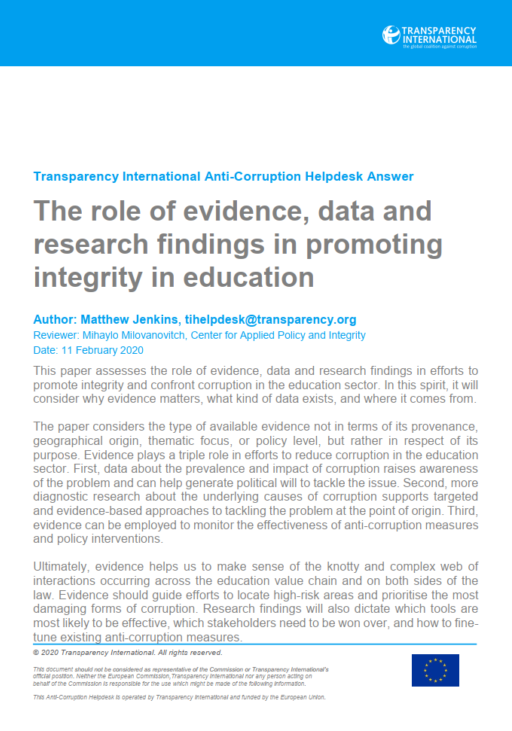The role of evidence, data and research findings in promoting integrity in education
Description
This paper assesses the role of evidence, data and research findings in efforts to promote integrity and confront corruption in the education sector. In this spirit, it will consider why evidence matters, what kind of data exists, and where it comes from.
The paper considers the type of available evidence not in terms of its provenance, geographical origin, thematic focus, or policy level, but rather in respect of its purpose. Evidence plays a triple role in efforts to reduce corruption in the education sector. First, data about the prevalence and impact of corruption raises awareness of the problem and can help generate political will to tackle the issue. Second, more diagnostic research about the underlying causes of corruption supports targeted and evidence-based approaches to tackling the problem at the point of origin. Third, evidence can be employed to monitor the effectiveness of anti-corruption measures and policy interventions.
Ultimately, evidence helps us to make sense of the knotty and complex web of interactions occurring across the education value chain and on both sides of the law. Evidence should guide efforts to locate high-risk areas and prioritise the most damaging forms of corruption. Research findings will also dictate which tools are most likely to be effective, which stakeholders need to be won over, and how to fine-tune existing anti-corruption measures.
Authors
Matthew Jenkins and Jorum Duri, [email protected]
Reviewer:
Mihaylo Milovanovitch, Center for Applied Policy and Integrity
Date
12/02/2020
Tags
 Download PDF
Download PDF
